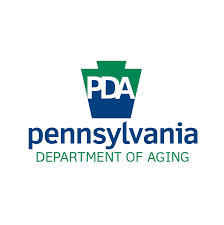 Harrisburg, PA – The Pennsylvania Department of Aging (PDA) has issued reopening guidance for aging services providers located in counties that are entering the green phase.
Harrisburg, PA – The Pennsylvania Department of Aging (PDA) has issued reopening guidance for aging services providers located in counties that are entering the green phase.
In collaboration with representatives of Area Agencies on Aging (AAAs) and adult day centers (ADCs), PDA has developed guidance and procedures for resuming operations of adult day centers, senior community centers (SCCs), and aging and protective services that involve in-person consumer contacts and in-home visits.
“The process of reopening will be conducted gradually, strategically and cautiously, while allowing flexibility at the local level to keep older adults and staff safe,” said Secretary of Aging Robert Torres. “There is not a “one-size-fits-all” approach to resuming operations and our overriding objective is to ensure the health and safety of older adults and staff.”
Guidance for SCCs has each AAA in a county that has entered the green phase identify which SCCs can reopen at full attendance and adhere to Centers for Disease Control and PA Department of Health precautionary and social distancing guidelines; which SCCs can reopen, but with reduced attendance to ensure social distancing; and which SCCs, if any, will not reopen immediately and provide the reason to PDA.
“Some Area Agencies on Aging and senior community centers may choose to reopen for in-person consumer services at a slower pace because they may not have the square footage to practice social distancing, or may currently lack volunteers or staff,” said Sec. Torres. “Our ongoing support for them will focus on working within the existing guidance to make service and activity decisions that best fit their individual capacities and situations.”
SCCs that fully or partially reopen are to develop new operational policies to address sanitation practices, social distancing, the number of participants attending at any one time, changes in programming, and communication of the new rules to participants. SCCs are required to routinely conduct health screenings and PDA has provided a health screening tool for this purpose.
Each SCC is to have a meal service policy in place that allows for social distancing, changes in meal service, and how it will manage meal service if it must serve fewer participants due to social distancing. Recognizing that seniors may have ongoing concerns and fears, alternative services and practices implemented at the start of the pandemic, such as maintaining different modes of getting meals to seniors, will continue for some time. Older adults needing a meal or in-home support are encouraged to call their local AAA.
PDA regulates more than 250 ADCs, which are non-residential facilities that support the health, nutritional and social needs of seniors and adults with disabilities. The reopening guidance recommends daily health checks for participants and staff prior to them entering program areas and use of a written wellness checklist developed by PDA. ADCs are to create separate areas both for screening participants who are entering the building, and for holding staff or participants with COVID-19 symptoms to wait until they can be transported out of the center.
“ADCs serve older adults who are among the most care-dependent,” said Sec. Torres. “The guidance we’ve developed provides cautionary measures that providers can take to ensure that participants and staff are protected as they adjust their center’s operations and activities.”
PDA has also issued guidance to AAAs to safely resume operations for in-person visits for aging services and protective services. The new screening tools for in-person visits – one focusing on consumer comfort level, the others on consumer health – have been created to help AAAs assess the situation and readiness of the older adult for resuming in-person visits.
“Our department recognizes the concerns and fears of older adults and staff regarding COVID-19, resulting in the need for ongoing caution and flexibility during the transition to normalize operations,” said Sec. Torres.
Sec. Torres noted that the protective services program has operated throughout the pandemic, with face-to-face safety measures in place to protect older adults and investigative staff. Anyone suspecting elder abuse should call the statewide reporting hotline at 1-800-490-8505 which operates 24 hours a day 7 days a week.
The reopening guidance documents, including health screening and other tools developed by PDA, can be found by clicking here and scrolling to “COVID-19 Reopening Provider Guidance.”
Visit the PA DOH’s dedicated Coronavirus webpage here for the most up-to-date information regarding COVID-19. Learn more about the various programs offered by the Pennsylvania Department of Aging here.

